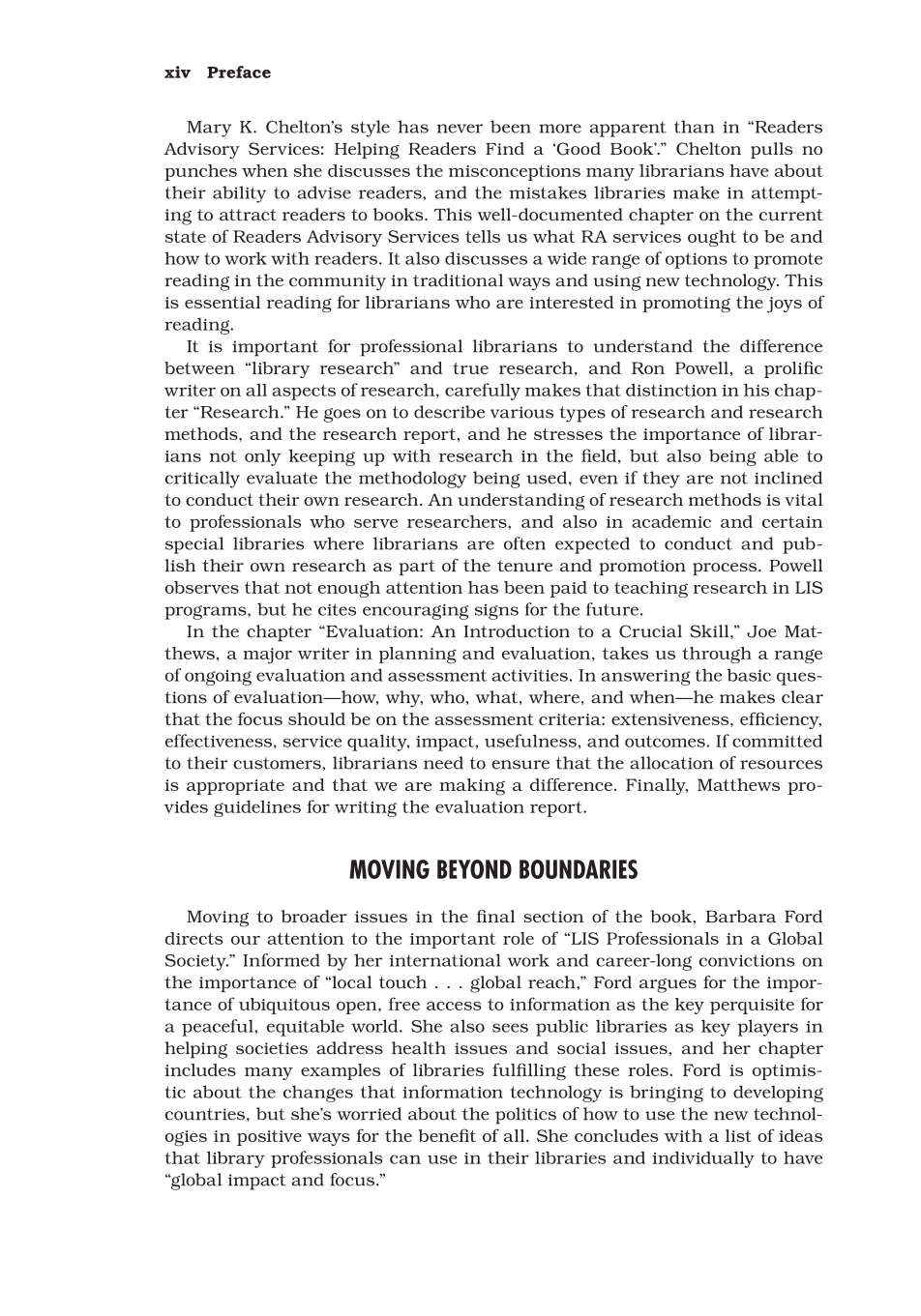xiv Preface
Mary K. Chelton’s style has never been more apparent than in “Readers
Advisory Services: Helping Readers Find a ‘Good Book’.” Chelton pulls no
punches when she discusses the misconceptions many librarians have about
their ability to advise readers, and the mistakes libraries make in attempt-
ing to attract readers to books. This well-documented chapter on the current
state of Readers Advisory Services tells us what RA services ought to be and
how to work with readers. It also discusses a wide range of options to promote
reading in the community in traditional ways and using new technology. This
is essential reading for librarians who are interested in promoting the joys of
reading.
It is important for professional librarians to understand the difference
between “library research” and true research, and Ron Powell, a prolific
writer on all aspects of research, carefully makes that distinction in his chap-
ter “Research.” He goes on to describe various types of research and research
methods, and the research report, and he stresses the importance of librar-
ians not only keeping up with research in the field, but also being able to
critically evaluate the methodology being used, even if they are not inclined
to conduct their own research. An understanding of research methods is vital
to professionals who serve researchers, and also in academic and certain
special libraries where librarians are often expected to conduct and pub-
lish their own research as part of the tenure and promotion process. Powell
observes that not enough attention has been paid to teaching research in LIS
programs, but he cites encouraging signs for the future.
In the chapter “Evaluation: An Introduction to a Crucial Skill,” Joe Mat-
thews, a major writer in planning and evaluation, takes us through a range
of ongoing evaluation and assessment activities. In answering the basic ques-
tions of evaluation—how, why, who, what, where, and when—he makes clear
that the focus should be on the assessment criteria: extensiveness, efficiency,
effectiveness, service quality, impact, usefulness, and outcomes. If committed
to their customers, librarians need to ensure that the allocation of resources
is appropriate and that we are making a difference. Finally, Matthews pro-
vides guidelines for writing the evaluation report.
MOVING BEYOND BOUNDARIES
Moving to broader issues in the final section of the book, Barbara Ford
directs our attention to the important role of “LIS Professionals in a Global
Society.” Informed by her international work and career-long convictions on
the importance of “local touch . . . global reach,” Ford argues for the impor-
tance of ubiquitous open, free access to information as the key perquisite for
a peaceful, equitable world. She also sees public libraries as key players in
helping societies address health issues and social issues, and her chapter
includes many examples of libraries fulfilling these roles. Ford is optimis-
tic about the changes that information technology is bringing to developing
countries, but she’s worried about the politics of how to use the new technol-
ogies in positive ways for the benefit of all. She concludes with a list of ideas
that library professionals can use in their libraries and individually to have
“global impact and focus.”











































































































































































































































































































































































































